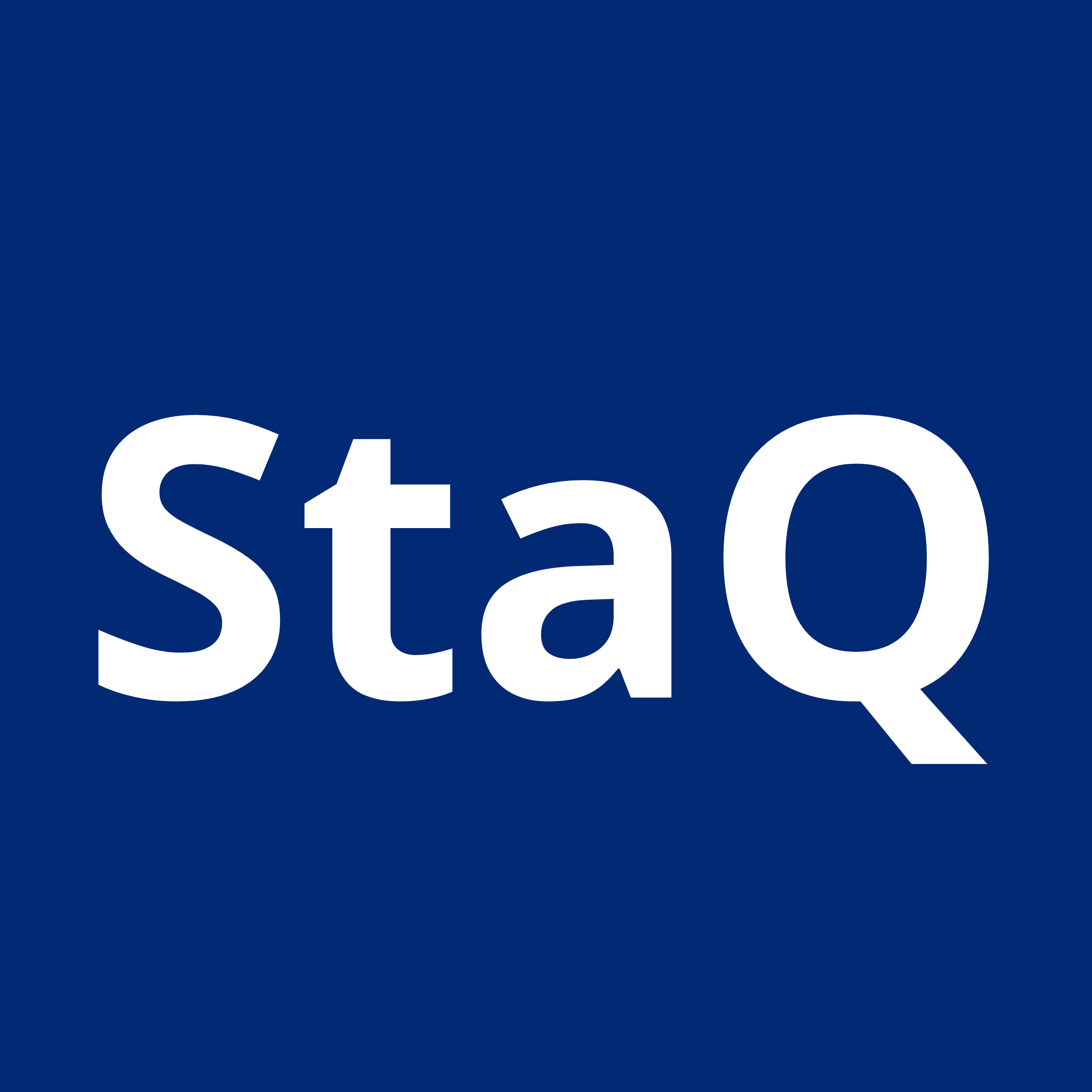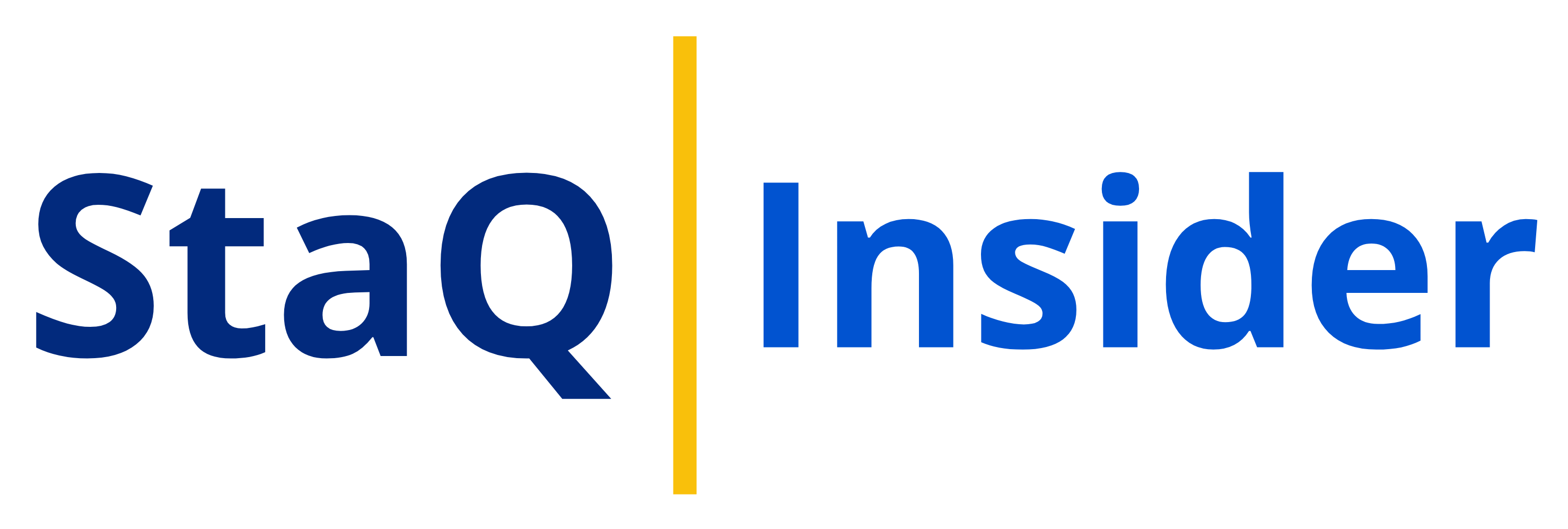As a business owner, you know that an efficient supply chain is the backbone of success. But managing the complex web of suppliers, logistics, and inventory can be a daunting task. But there’s a solution that forward-thinking companies are embracing: SCM software. Supply Chain Management software is a game-changer for businesses seeking to optimize their supply chain processes and gain a competitive edge.
Let’s see how!
What is SCM Software, and how it benefit businesses?
SCM (Supply Chain Management) software is a powerful digital solution that orchestrates and optimizes the intricate flow of goods, data, and finances across your entire supply chain network. It offers benefits such as:
- Improved Efficiency: SCM software enhances operational efficiencies by pre-empting and eliminating bottlenecks, automating routine tasks, and increasing workplace productivity.
- Increased Visibility: It provides end-to-end visibility across the supply chain, enabling data sharing and collaboration between businesses and their partners, leading to greater control over the supply chain.
- Cost Savings: SCM software helps in better inventory management, waste minimization, and payment tracking. This resulting in overall cost savings that positively impact the bottom line.
- Risk Mitigation: It assists in identifying and mitigating risks posed by external factors, allowing businesses to avert disruptive effects on the supply chain.
- Enhanced Collaboration: SCM software bridges the gap between different business systems, improving collaboration among supply chain partners by facilitating real-time data sharing and communication.
- Minimized Delays: By coordinating and executing all activities seamlessly, SCM software ensures higher levels of on-time delivery, reducing delays in the supply chain.
- Better Decision Making: SCM software provides data and insights for informed decision-making by tracking key performance indicators and comparing them against industry benchmarks.
- Customer Satisfaction: It enables businesses to track customer orders and shipments in real-time, resolving issues proactively and providing up-to-date information to customers, thus enhancing customer service.
Overall, SCM software enables businesses to respond more quickly to changing market conditions, optimize resources, and make informed decisions based on real-time data and analytics.
What are the Different Types of SCM Software available?
The different types of Supply Chain Management (SCM) software available include:
- Order Processing Software: This type of software automates and supports key steps in order processing, such as sales order processing, order fulfillment, and overall order management.
- Inventory Management Software: Inventory management tools optimize warehouse space usage, streamline production, and enhance efficiency by tracking inventory levels and demand projections.
- Warehouse Management Software: Warehouse management systems track stock quantity, location, and movement within warehouses, standardizing storage, picking, packing, and shipping activities to reduce inefficiencies.
- Lean Inventory Tools: These tools focus on lean production principles, ensuring companies produce only what is needed at a given time, minimizing waste, and optimizing production processes.
- Supplier Management Software: Supplier management tools help analyze supplier relationships, manage supplier compliance, automate purchase orders, and evaluate supplier performance.
- Demand Forecasting Software: This software leverages data to forecast future demand, enabling proactive purchasing decisions, reducing overhead costs, and improving margins.
- Logistics Tools: Logistics software optimizes shipping and delivery services, prevents delays, and supports sustainability initiatives by tracking a company’s carbon footprint.
- Bid and Spend Tools: These tools provide automation in the procurement process, enhance spending analysis, and facilitate bid evaluation, reducing human errors and improving efficiency.
- Security Tools: SCM software includes security features to prevent data breaches and ensure data integrity, enhancing overall supply chain security.
These types of SCM software cater to various aspects of the supply chain process, offering automation, optimization, and efficiency benefits to businesses across different industries.
Does SCM Software Integrate with Other Business Systems?
SCM software integrates with various other business systems to enhance operational efficiency and streamline processes. Some key systems that SCM software can integrate with include:
- Enterprise Resource Planning (ERP): ERP systems provide real-time insights and full visibility into data, making them a crucial integration for SCM software to optimize supply chain processes.
- Customer Relationship Management (CRM): Integrating SCM with CRM systems facilitates a seamless interface between supply chain processes and customer service, ultimately improving customer satisfaction and enhancing the overall customer experience.
- Warehouse Management Systems (WMS): Integration with WMS allows for better inventory management, tracking of stock levels, and streamlining warehouse operations, leading to improved efficiency in the supply chain.
- Financial Management Software: SCM software integration with financial management systems enables comprehensive access to expenses, billing history, and financial data, facilitating better financial management and cost control within the supply chain.
- Order Management Systems: Integration with order management systems ensures coordination of orders, material acquisitions, and invoices, simplifying the production and transportation processes and eliminating the need for manual data entry and reconciliation.
Not all SCM software offers the same level of integration. When choosing a solution, consider your existing business systems and ensure compatibility for optimal data flow and streamlined operations.
Factors to consider when choosing SCM Software for your Business
With a plethora of SCM software options available, choosing the right one can feel like navigating a maze. By considering these key factors, you’ll find the perfect solution to unlock your supply chain’s potential:
-
Compatibility with Business:
First, to ensure a smooth flow of goods and materials throughout your supply chain, it’s crucial that the SCM software you choose is compatible with your existing business processes. In addition to compatibility, the software should also effectively manage overall supply chain activities. This includes functions like supplier relationship management, inventory management, spend visibility, and spare part availability.
-
Functionality:
Evaluate the functionality of the SCM software to ensure it aligns with your supply chain needs. In particular, the software should be able to track inventory, calculate supply costs, and manage the flow of products from suppliers to end-users.
-
Ease of Implementation:
Consider how easy it is to integrate the software into your existing business processes to avoid disruptions and ensure a smooth transition.
-
Ease of Use:
Assess how user-friendly the software is and how easily daily operations can be managed within the system to optimize efficiency and productivity.
-
Security:
Prioritize the security features of the SCM software to safeguard against cyber threats and ensure the protection of sensitive data within your supply chain processes.
-
Support:
Evaluate the responsiveness of the software provider’s support team and the average resolution time to address any issues promptly and efficiently.
-
Scalability:
Choose an SCM solution that can easily scale as your business grows, accommodating increased demands and complexities within your supply chain network.
-
Cost and ROI:
Consider the total cost of ownership of each SCM solution and assess the return on investment it can provide to your business in terms of efficiency, cost savings, and improved performance.
By considering these factors, you’ll be well-equipped to choose the perfect SCM software that transforms your supply chain into a competitive advantage.
But why go it alone? StaQ.ai is your one-stop shop for navigating this exciting journey. Our curated marketplace offers a treasure trove of leading SCM software solutions, all tailored to address specific business challenges. Stop wasting time wading through endless options. Visit StaQ.ai to unlock the power of efficient, streamlined operations!
What are some of the Leading SCM Software Options in 2024?
-
SAP Supply Chain Management Software
- SAP SCM offers a comprehensive suite of SCM products for supply chain planning, logistics, and product lifecycle management.
- Pricing: Contact SAP for pricing details.
- Features: Extensive SCM ecosystem, IoT compatibility, and various SCM modules.
- Pros: Robust SCM solutions, IoT integration, and comprehensive product range.
- Cons: Potentially higher pricing, complex ecosystem selection, and initial learning curve.
-
Microsoft Dynamics 365 Supply Chain Management
- Microsoft Dynamics 365 SCM solution is part of the Dynamics 365 suite, offering cloud-based ERP with HR, CRM, and e-commerce capabilities.
- Pricing: Available as part of the Dynamics 365 suite.
- Features: Cloud-based ERP, extensive customization options, and scalability.
- Pros: Integration with other Microsoft tools, cloud-based infrastructure, and scalability.
- Cons: Limited standalone functionality, dependency on Microsoft ecosystem, and potential customization complexity.
-
Oracle NetSuite
- Oracle NetSuite SCM is a cloud-based ERP platform offering supply planning, HR, CRM, and e-commerce functionalities.
- Pricing: Subscription-based pricing model.
- Features: Cloud-based ERP, extensive customization options, and scalability.
- Pros: Cloud-based infrastructure, extensive customization, and scalability.
- Cons: Potential subscription costs, dependency on cloud infrastructure, and customization complexity.
-
Intelex SCM Software
- Intelex SCM specializes in supplier onboarding and performance management, offering root cause analysis and performance evaluations.
- Pricing: Contact Intelex for pricing details.
- Features: Supplier performance management, root cause analysis, and performance evaluations.
- Pros: Focus on supplier management, root cause analysis capabilities, and performance insights.
- Cons: Limited information on pricing, potential complexity in root cause analysis, and performance evaluation setup.
-
Logiwa
- Logiwa SCM comes with over 200 integrations, real-time syncing, and automation rules for efficient order processing.
- Pricing: Contact Logiwa for pricing details.
- Features: Real-time syncing, automation rules, and over 200 integrations.
- Pros: Extensive integrations, real-time syncing, and automation capabilities.
- Cons: Limited pricing information, potential complexity in automation rule setup, and integration management.
-
JDA Software
- JDA Software offers a comprehensive suite of SCM solutions for retail, manufacturing, and logistics industries.
- Pricing: Contact JDA for pricing details.
- Features: Industry-specific solutions, AI-powered insights, and end-to-end supply chain visibility.
- Pros: Tailored solutions for various industries, AI-driven insights, and comprehensive supply chain visibility.
- Cons: Potential pricing complexity, integration challenges with legacy systems, and learning curve for AI-powered features.
-
Blue Yonder
- Blue Yonder (formerly JDA Software) provides AI-powered SCM solutions for demand forecasting, inventory optimization, and transportation management.
- Pricing: Contact Blue Yonder for pricing details.
- Features: AI-powered demand forecasting, inventory optimization, and transportation management.
- Pros: AI-driven insights, demand forecasting capabilities, and inventory optimization.
- Cons: Potential pricing complexity, integration challenges with legacy systems, and learning curve for AI-powered features.
-
Epicor SCM
- Epicor SCM offers cloud-based and on-premises SCM solutions for manufacturing, distribution, and retail industries.
- Pricing: Contact Epicor for pricing details.
- Features: Industry-specific solutions, cloud-based and on-premises deployment options, and real-time data insights.
- Pros: Tailored solutions for various industries, flexible deployment options, and real-time data insights.
- Cons: Potential pricing complexity, integration challenges with legacy systems, and learning curve for advanced features.
-
Sage X3
- Sage X3 is an ERP solution that includes SCM capabilities for manufacturing, distribution, and services industries.
- Pricing: Contact Sage for pricing details.
- Features: ERP with SCM functionalities, industry-specific solutions, and real-time data insights.
- Pros: Integrated ERP and SCM, industry-specific solutions, and real-time data insights.
- Cons: Potential pricing complexity, integration challenges with legacy systems, and learning curve for advanced features.
-
Acumatica Cloud ERP
- Acumatica Cloud ERP is a cloud-based solution with SCM capabilities for distribution, manufacturing, and retail industries.
- Pricing: Contact Acumatica for pricing details.
- Features: Cloud-based ERP with SCM functionalities, industry-specific solutions, and mobile accessibility.
- Pros: Cloud-based infrastructure, industry-specific solutions, and mobile accessibility.
- Cons: Potential pricing complexity, integration challenges with legacy systems, and learning curve for advanced features.
These leading SCM software solutions offer a range of features and capabilities to optimize supply chain operations, enhance efficiency, and streamline processes within businesses.

The Future of Supply Chain Management: Smarter, More Connected
The future of supply chain management is poised for significant transformation, driven by key trends and innovations that are reshaping the industry. These trends include:
- AI & Machine Learning: Powerful analytics will predict demand fluctuations, optimize inventory levels, and even identify potential disruptions.
- Blockchain: Securely shared data across the supply chain improves transparency and streamlines collaboration.
- IoT & Sensors: Real-time data from devices tracks inventory movement, monitors conditions, and enables proactive adjustments.
- Digital Twins: By creating virtual replicas of supply chains, companies can simulate risks and optimize processes before real-world implementation.
- Cloud-Based Solutions: Scalable, accessible software empowers businesses of all sizes to leverage cutting-edge functionalities.
These advancements promise a future of smarter, more resilient, and agile supply chains.





